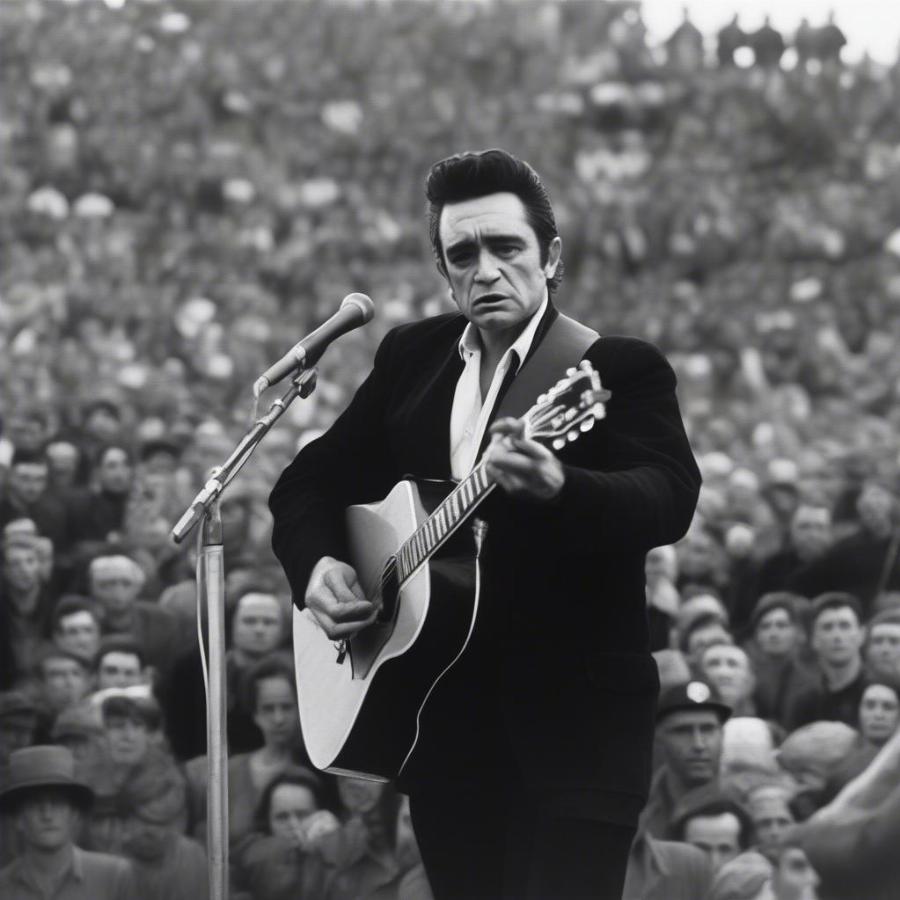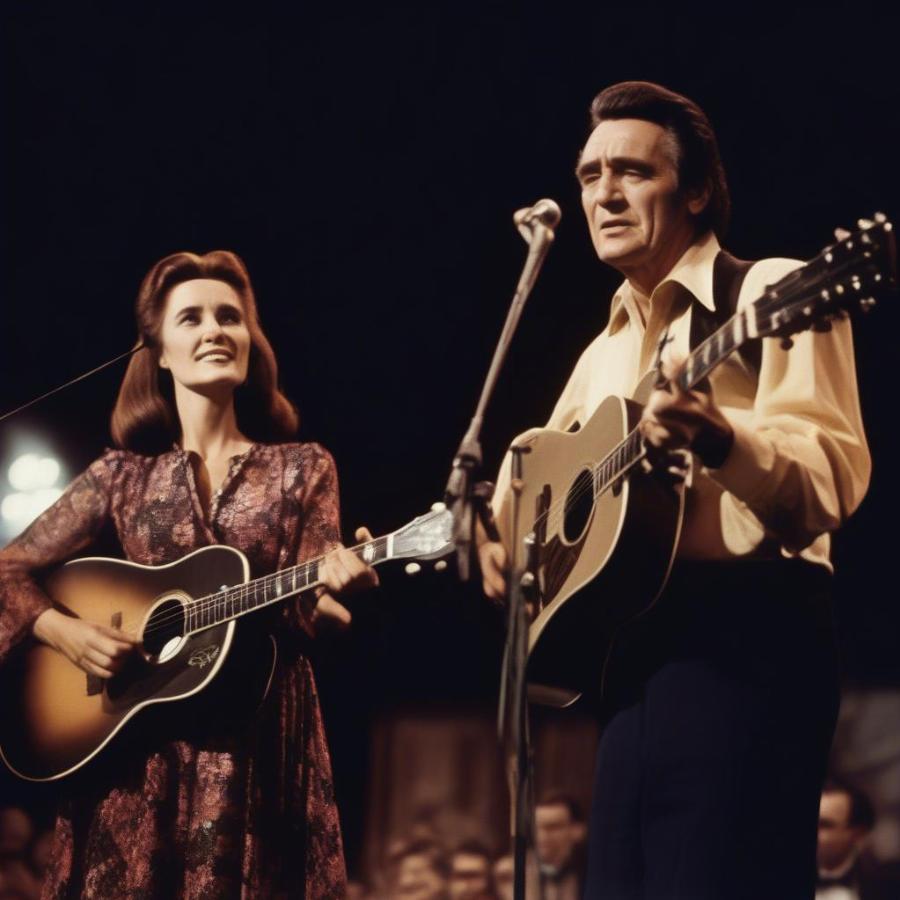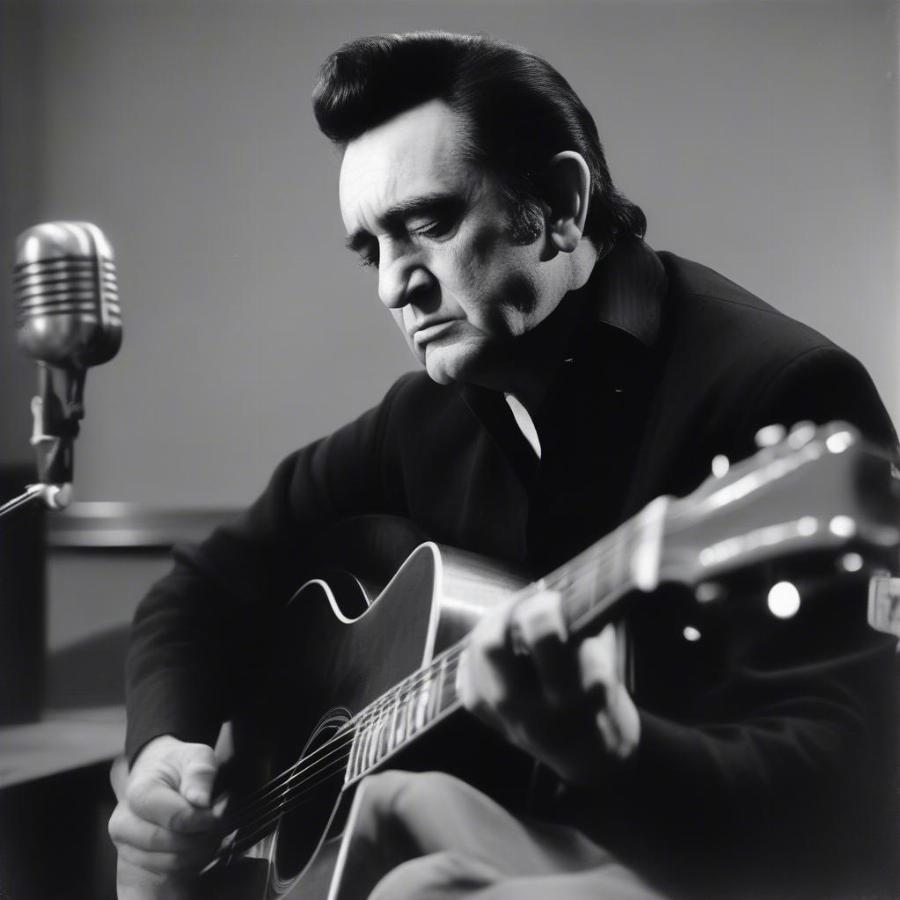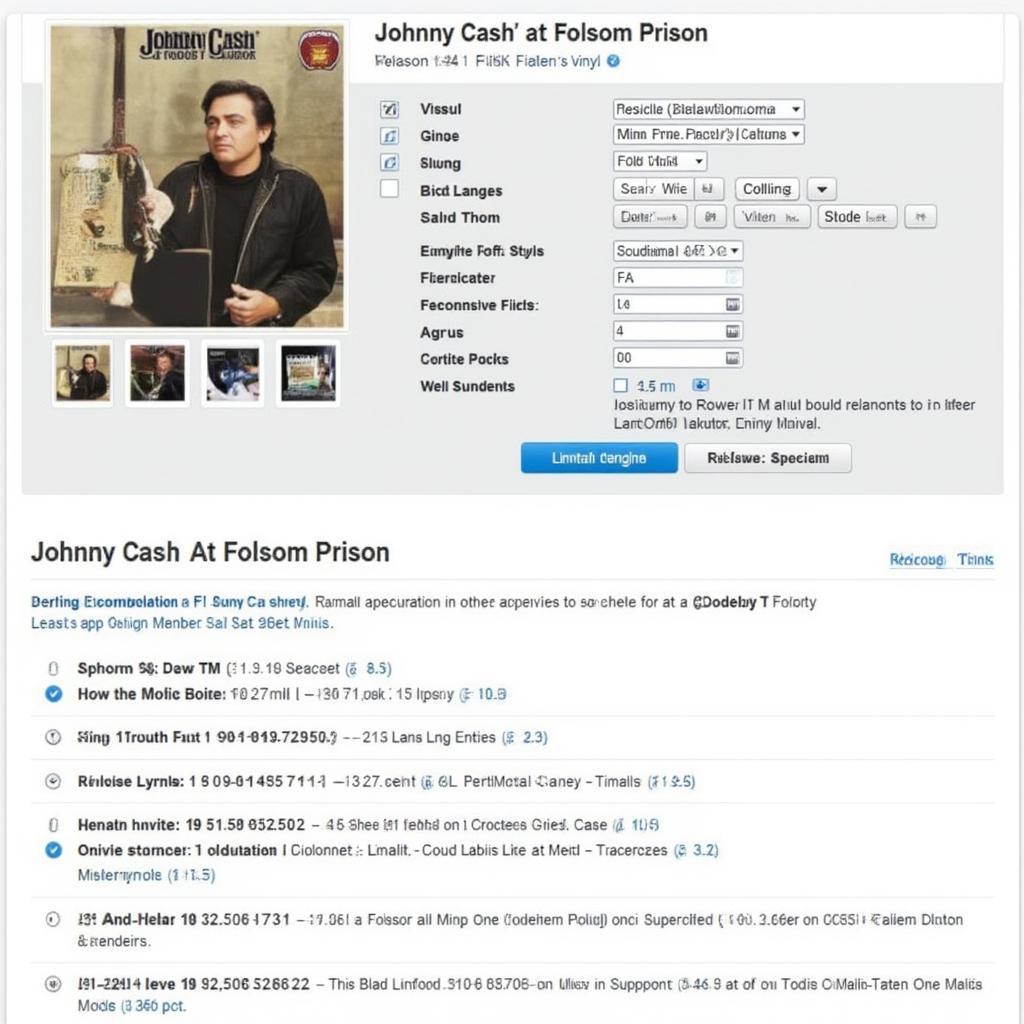Walking the Line: Exploring the Depth of “The Line” in Johnny Cash’s Life and Music

“The line” for Johnny Cash wasn’t just a lyric; it was a philosophy, a tightrope walk between darkness and light that defined his music and his life. From his early gospel roots in Arkansas to his outlaw image and struggles with addiction, Cash constantly wrestled with “the line,” blurring the boundaries of good and evil, sin and redemption, ultimately creating a raw, honest, and undeniably compelling narrative that continues to resonate with audiences today.
One of the most iconic representations of “the line” in Cash’s career is, of course, his hit song “I Walk the Line.” The song, written in 1956 while on tour with Elvis Presley, is a testament to Cash’s commitment to his first wife, Vivian Liberto. While separated by the demands of his burgeoning career, Cash promised to stay faithful, to “walk the line” of righteousness and resist temptation. This early manifestation of “the line” reveals a man grappling with the conflicting pulls of ambition and responsibility. The song’s simple yet powerful lyrics, coupled with Cash’s distinctive boom-chicka-boom sound, immediately resonated with listeners, establishing him as a force in the country music scene. Much like johnny cash i walk the line, other songs in his repertoire explore similar themes of commitment and inner struggle.
The Many Lines Johnny Cash Walked
Cash’s life was a complex tapestry woven with threads of personal struggle, artistic brilliance, and social activism. He walked many lines, some metaphorical, some literal. His early life in Dyess, Arkansas, during the Great Depression, instilled in him a deep empathy for the working class, the downtrodden, and the forgotten. This empathy became a defining characteristic of his music, often focusing on the stories of prisoners, laborers, and those living on the fringes of society. He championed the cause of Native Americans, giving voice to their struggles and injustices in songs like “The Ballad of Ira Hayes.” He walked the line between commercial success and artistic integrity, refusing to be pigeonholed and constantly pushing the boundaries of country music.

His rebellious streak, often manifested in his music and his public persona, further solidified his image as an “outlaw.” He clashed with authority, flouted conventions, and embraced his outsider status. Yet, at the same time, he held onto a deep-seated faith, constantly seeking redemption and exploring themes of spirituality in his music. This duality, the tension between the outlaw and the believer, is perhaps the most compelling “line” that Cash navigated throughout his life.
Did Johnny Cash Really “Walk the Line”?
The question of whether Johnny Cash genuinely “walked the line” is a complex one. While “I Walk the Line” speaks of fidelity, Cash’s personal life was marked by periods of infidelity and struggle with addiction. His marriage to Vivian Liberto eventually ended in divorce, and his subsequent marriage to June Carter Cash, while a deeply loving and supportive partnership, was not without its challenges. His battles with amphetamines and other substances were well documented, and these struggles often brought him close to the edge. In many ways, Cash embodied the human condition, the constant struggle to live up to ideals, the inevitable stumbles and falls along the way. Similar to the dynamic explored in johnny cash and the highwaymen, his life was a testament to the complexities of human relationships and the search for meaning.

The Legacy of “The Line”
Dr. Alan Lomax, an eminent ethnomusicologist, once remarked on Cash’s uncanny ability to connect with the “common man.” This connection, forged through the honesty and rawness of his music, is a direct reflection of Cash’s constant grappling with “the line.” He didn’t shy away from darkness; he embraced it, explored it, and ultimately transcended it, offering a message of hope and redemption to those who felt lost and forgotten. His music continues to resonate today because it speaks to universal truths about the human experience. It acknowledges the struggles, the imperfections, and the constant search for meaning in a world that often feels chaotic and unfair. The concept of “the line” remains relevant, not just in the context of Cash’s life, but in our own lives as we navigate the complexities of the modern world.

Just as the friendship between george jones and johnny cash reflected shared experiences in country music, Cash’s own journey mirrors the genre’s evolution. His unique blend of country, rockabilly, gospel, and blues cemented his status as a true icon, and his music continues to influence generations of artists. Much like how country music johnny cash continues to be celebrated, his contribution remains a cornerstone of the genre’s rich tapestry.
In conclusion, “the line” in Johnny Cash’s life wasn’t a static boundary but a dynamic force, a constant negotiation between opposing forces. It was this tension, this struggle, that fueled his creativity and shaped his legacy. He walked many lines, both literally and metaphorically, and by doing so, he gave voice to the voiceless, offered solace to the suffering, and left an indelible mark on the landscape of American music. His music, much like the stories surrounding cadillac johnny cash, embodies a spirit of rebellion and resilience, a testament to the enduring power of the human spirit.

FAQ: Walking the Line with Johnny Cash
-
What does “walk the line” mean in Johnny Cash’s song? It refers to staying faithful and resisting temptation while on the road, a promise to his then-wife.
-
What are some other “lines” Johnny Cash walked in his life? He walked the line between outlaw and believer, commercial success and artistic integrity, and championing social justice while battling personal demons.
-
Did Johnny Cash always “walk the line” in his personal life? No, his life was marked by struggles with addiction and infidelity, revealing a complex and human portrayal of the struggle to live up to ideals.
-
Why is “I Walk the Line” such an important song? It established Cash as a major force in country music and introduced the concept of “the line” which became a recurring theme in his life and work.
-
How did Johnny Cash’s upbringing influence his music? His childhood during the Great Depression instilled in him a deep empathy for the working class and the marginalized, which became central to his music.
-
What makes Johnny Cash’s music still relevant today? His honesty, rawness, and exploration of universal human struggles continue to resonate with audiences across generations.
-
What is the significance of “the line” in Johnny Cash’s legacy? It represents the ongoing struggle between opposing forces within himself and within society, a theme that defined his music and his life.
-
How did Johnny Cash contribute to social activism through his music? He championed the cause of Native Americans, prisoners, and the working class, giving voice to their struggles and injustices.
-
What are some key themes explored in Johnny Cash’s music beyond “walking the line”? Redemption, faith, love, loss, and the human condition are all prominent themes in his vast catalog of songs.




